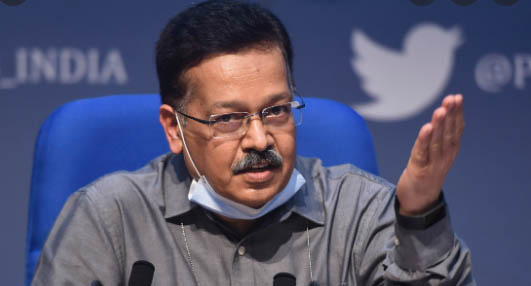New Delhi, Feb 28: Amid unusual rise in temperatures in some places ahead of the summer season, the Union health ministry has written to all states and Union territories, asking them to ensure that all their health facilities update information on heat-related illnesses and deaths on the designated portal.
Drawing attention to “National Action Plan on Heat Related Illnesses”, which is available on website of National Centre for Disease Control (NCDC), the ministry requested for dissemination of guidance document to all districts for effective preparedness of health department and health facilities to address heat impact and management of cases arising because of it, record maintenance and surveillance etc.
From March 1, daily surveillance on heat-related illnesses under National Programme on Climate Change and Human Health (NPCCHH) in all states and districts will be conducted on Integrated Health Information Platform (IHIP), Union Health Secretary Rajesh Bhushan said in the letter to all states and Union territories.
“Please ensure that all the health facilities participate using existing P-form level login information and continue to keep line lists of cases and deaths as per the prescribed formats,” Bhushan said.
In the letter, Bhushan also urged all states and Union territories to review health facility preparedness for availability of adequate quantities of essential medicines, intravenous fluids, ice packs, ORS and all necessary equipment.
Availability of sufficient drinking water at all health facilities and continued functioning of cooling appliances in critical areas must be ensured, he said.
“Temperatures have already touched unusual high at some places in the country and substantial deviations from expected normal temperatures for this time of the year are also being reported from some states and districts,” Bhushan said.
The daily heat alerts which are being shared by NPCCHH, NCDC, Ministry of Health and Family Welfare with states indicate forecast of heat wave for next few days and may be disseminated promptly at district and health facility level, he wrote.
He asked the state, district and city health departments to ensure implementation of heat-related health action plans and support in planning, managing and assessing response to heat along with responding agencies.
Bhushan further stressed that health departments of the state must continue efforts on sensitization and capacity building of medical officers, health staff, grass-root level workers on heat illness, its early recognition and management.
Health facility preparedness must be reviewed for availability of adequate quantities of essential medicines, intravenous fluids, ice packs, ORS and all necessary equipment.
Health facilities need to increase resilience to extreme heat by arranging uninterrupted
electricity for constant functioning of cooling appliances, installation of solar panels (wherever
feasible), energy conservation measures and measures to reduce indoor heat through cool/green roof (NDMA guidelines may be referred), window shades, shade outside etc. Rain water harvesting and recycling plants may also be explored for self-sufficiency in water.
He also urged states to utilize information, education and communication as well as community level awareness materials developed by NPCCHH regarding the precautions to be taken by population to safeguard themselves against heat wave.
Bhushan further shared a standard template of public health advisory incorporating do’s and don’ts prepared by NCDC with the letter. (Agencies)
Trending Now
E-Paper


